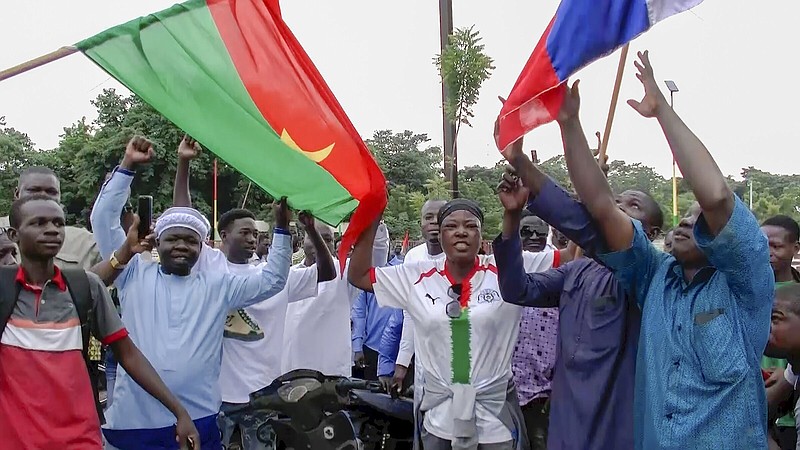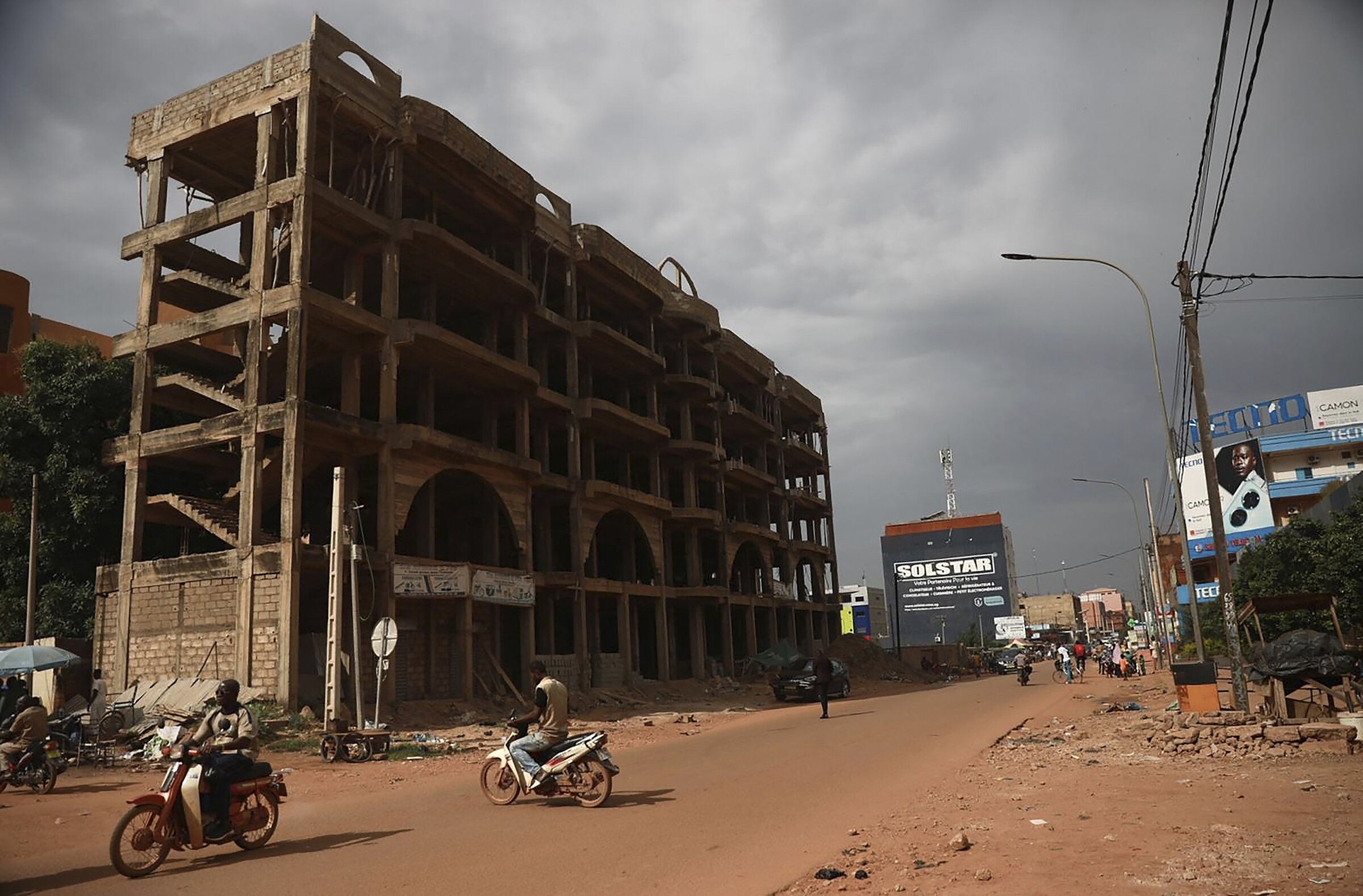OUAGADOUGOU, Burkina Faso -- More than a dozen soldiers seized control of Burkina Faso's state television late Friday, declaring that the country's coup leader-turned-president, Lt. Col. Paul Henri Sandaogo Damiba, had been overthrown after only nine months in power.
A statement read by a junta spokesman said Capt. Ibrahim Traore is the new military leader of Burkina Faso, a volatile West African country that is battling a mounting Islamic insurgency.
Burkina Faso's new military leaders said the country's borders had been closed and a curfew would be in effect from 9 p.m. to 5 a.m. The transitional government and national assembly were ordered dissolved.
Damiba and his allies overthrew the democratically elected president, coming to power with promises of making the country more secure. However, violence has continued unabated and frustration with his leadership has grown in recent months.
Gunfire rang out in Burkina Faso's capital and the state broadcaster went off the air Friday.
"Negotiations are underway to bring back calm and serenity," the statement attributed to the presidency spokesman read. "The enemy attacking our country only wants division between Burkinabes."
"Faced by the continually worsening security situation, we the officers and junior officers of the national armed forces were motivated to take action with the desire to protect the security and integrity of our country," according to the statement read by the junta spokesman, Capt. Kiswendsida Farouk Azaria Sorgho.
The soldiers promised the international community they would respect their commitments and urged Burkinabes "to go about their business in peace."
"A meeting will be convened to adopt a new transitional constitution charter and to select a new Burkina Faso president be it civilian or military," Sorgho added.
On the streets of the capital, Ouagadougou, some already were showing support for what they believed was Damiba's ouster.
"People were expecting a real change," Francois Beogo, a political activist from the Movement for the Refounding of Burkina Faso, said of the January coup d'etat.
Some demonstrators voiced support for Russian involvement to stem the violence and shouted slogans against France, Burkina Faso's former colonizer. In neighboring Mali, the junta invited Russian mercenaries from the Wagner Group to help secure the country, though their deployment has drawn international criticism.
Burkina Faso's January coup came after similar takeovers in Mali and Guinea, heightening fears of a rollback of democracy in West Africa. None of the juntas have committed to a date for new elections, though Damiba said last week that the transition in Burkina Faso would last for almost two more years.
Many in Burkina Faso initially supported the military takeover, frustrated with the previous government's inability to stem Islamic extremist violence that has killed thousands and displaced at least 2 million people.
Yet the violence has failed to wane in the months since Damiba took over. Earlier this month, he also took over the position of defense minister after dismissing a brigadier general from the post.
"It's hard for the Burkinabe junta to claim that it has delivered on its promise of improving the security situation, which was its pretext for the January coup," said Eric Humphery-Smith, senior Africa analyst at the risk intelligence company Verisk Maplecroft.
Earlier this week, at least 11 soldiers were killed and 50 civilians went missing after a supply convoy was attacked by gunmen in Gaskinde commune in Soum province in the Sahel. That attack was "a low point" for Damiba's government and "likely played a role in inspiring what we've seen so far today," added Humphery-Smith.
U.N. spokesman Stephane Dujarric said Friday that nearly one-fifth of Burkina Faso's population "urgently needs humanitarian aid."
"Burkina Faso needs peace, it needs stability and it needs unity in order to fight terrorist groups and criminal networks operating in parts of the country," Dujarric said.
Chrysogone Zougmore, president of the Burkina Faso Movement for Human Rights, called Friday's developments "very regrettable," saying the instability would not help in the fight against the Islamic extremist violence.
"How can we hope to unite people and the army if the latter is characterized by such serious divisions?" Zougmore said. "It is time for these reactionary and political military factions to stop leading Burkina Faso adrift."
Information for this article was contributed by Krista Larson and Edith M. Lederer of The Associated Press.

